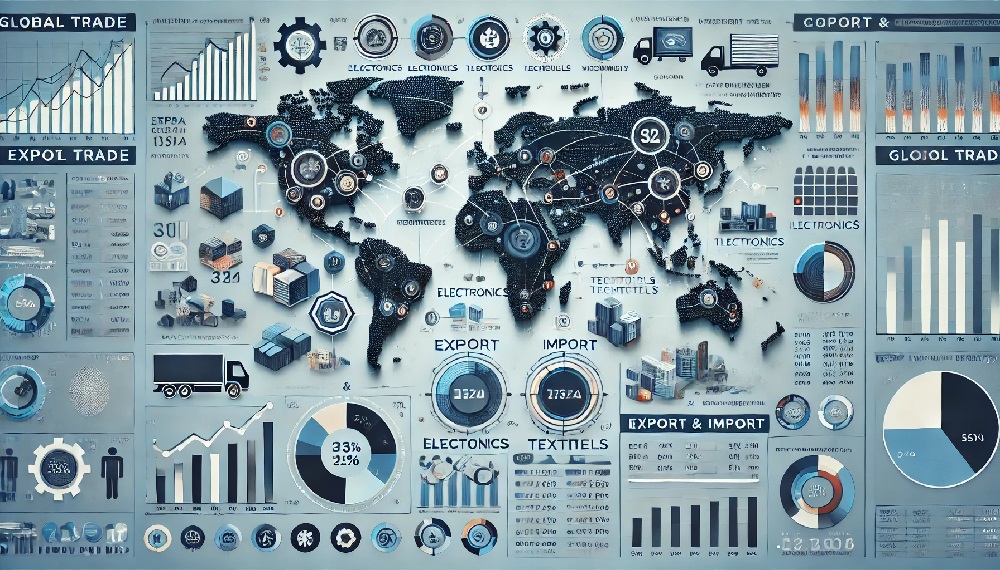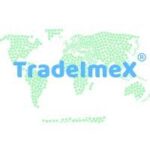
Customs data is a critical yet often overlooked asset in the world of international trade. As the global marketplace expands, importers and exporters increasingly rely on customs data to make informed decisions, streamline their processes, and stay ahead of the competition. In this blog post, we will explore how businesses in the US and the EU leverage customs data to optimize their import/export activities, enhance compliance, and unlock new opportunities.
What is Customs Data?
Customs data refers to the detailed records provided by customs authorities regarding shipments crossing international borders. These records contain vital information, such as the type of goods being imported or exported, their value, the country of origin, and the destination market. Customs data is collected by government authorities and often made available for public use or as a commercial service.
For importers and exporters, this data is valuable because it offers unparalleled insights into global trade flows, supply chain dynamics, competitor activities, and market trends. This data helps businesses stay agile and competitive, making it easier to identify market opportunities and anticipate challenges.
Key Benefits of Customs Data for Importers and Exporters
- Enhanced Market Intelligence and Competitor Analysis
By analyzing customs data, importers and exporters can gain a deep understanding of trade activities, including the volumes of goods traded, their specific characteristics (such as product types or brands), and even trade routes. This insight allows businesses to monitor the flow of goods to and from specific countries, making it possible to gauge demand for particular products in foreign markets.
For instance, US importers can use EU customs data to track popular European products entering their market, while EU exporters can examine US customs records to analyze how well their products are performing in the US market. Monitoring competitors’ trade volumes and routes also offers valuable data on potential markets for expansion.
- Better Trade Route Optimization
With the help of customs data, businesses can identify optimal trade routes for their imports and exports. Understanding which routes are frequently used for a product’s movement helps importers and exporters plan their supply chains efficiently. By reviewing data on the most active ports, it is possible to determine whether a particular market or shipment route is cost-effective and reliable.
In the case of the US and EU markets, businesses can track the frequency of shipments arriving via major ports such as Los Angeles, New York, Hamburg, and Rotterdam. This helps identify key logistics hubs and provides a competitive advantage by helping businesses optimize transportation costs and delivery times.
- Increased Regulatory Compliance and Risk Mitigation
Global trade regulations can be complex, and compliance is often a major concern for businesses. Customs data offers insight into changing tariffs, duties, and classification codes for products in different markets, helping businesses adhere to rules and regulations, thus avoiding costly penalties or delays.
For example, businesses in the US importing goods from the EU can track EU customs data to stay updated on anyregulatory changes, such as new import quotas, additional fees, or updates to product classifications. This reduces the risk of shipments being delayed, flagged for non-compliance, or faced with unexpected tariffs. Similarly, EU importers can monitor the US market’s shifting regulations and adapt their procedures to ensure smooth transactions.
- Identifying New Market Opportunities
Customs data allows importers and exporters to identify emerging markets and areas of product demand across the globe. By tracking import-export trends, businesses can discover under-served or high-growth markets and make strategic decisions on where to allocate resources. For example, if a certain product is seeing increased demand in the US market but is relatively underrepresented in the EU market, an exporter in Europe could seize the opportunity to fill that gap.
In addition to identifying specific regions or countries, businesses can examine seasonality trends and identify fluctuations in demand for certain products. This is particularly valuable for industries such as electronics or seasonal goods, which experience strong seasonal or market-specific fluctuations.
- Improved Supply Chain Visibility
Understanding the movement of goods through different countries provides greater visibility and control over the entire supply chain. Customs data not only tracks shipments but also offers insight into potential bottlenecks or disruptions in the process. For example, businesses can monitor if customs procedures are causing delays at specific ports, allowing them to adjust logistics or production schedules accordingly.
US and EU importers can use this visibility to reduce uncertainties in their supply chain operations, minimize stockouts or overstock situations, and ultimately improve profitability.
- Cost-Effectiveness and Pricing Strategies
By reviewing customs data, businesses gain insights into the pricing of competing products, the costs associated with trade and logistics, and even foreign exchange trends. This information allows them to develop more effective pricing strategies that consider competition, cost structures, and market conditions.
For example, by examining EU customs data on US-bound imports, European exporters can determine competitive price points based on prevailing market costs and duties. Likewise, businesses in the US can adjust their pricing models or reevaluate their import strategies when evaluating tariffs and the economic outlook in the EU.
Case Study: The US Market and EU Customs Data
Let’s examine a practical example of how customs data benefits a business that imports consumer electronics from the EU into the US. Using detailed customs data, the importer gains insights into:
- The volume of electronic products being shipped to the US, allowing them to forecast demand.
- Customs clearance times at major US ports such as Los Angeles and New York, helping to predict shipping durations and reduce delays.
- Tariff rates on specific products, offering a clearer understanding of cost breakdowns, which aids in pricing products competitively.
- Competitor analysis, showing what types of products are currently dominating the US market.
With this information, the US importer can streamline operations by choosing better trade routes, negotiating with suppliers for competitive pricing, and responding proactively to market demand shifts.
Conclusion
In both the US and EU markets, customs data offers invaluable advantages to importers and exporters by enhancing market intelligence, ensuring regulatory compliance, optimizing logistics, and uncovering potential market opportunities. Leveraging customs data not only helps businesses reduce operational costs but also allows them to remain agile in an ever-changing global marketplace.
As international trade continues to evolve, the use of comprehensive and up-to-date customs data will remain an essential tool for driving business growth and making informed decisions. Both established players and newcomers in the trade industry can harness the power of this data to sharpen their strategies, mitigate risks, and unlock new possibilities for global success.
